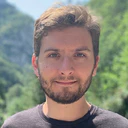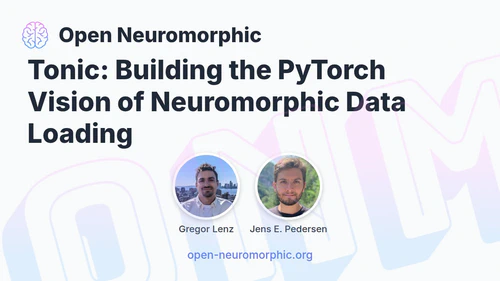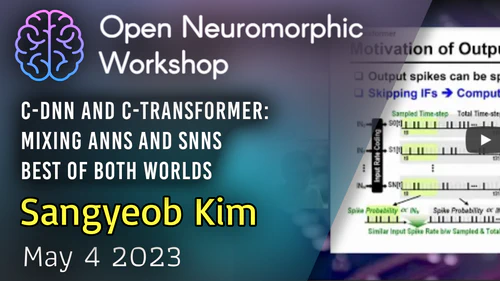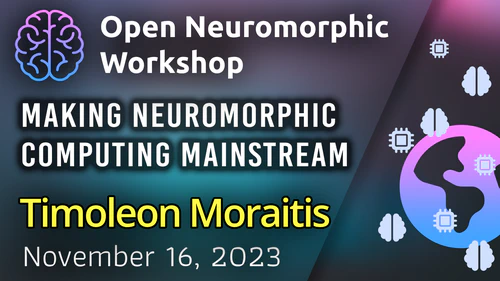Abstract
The neuromorphic computing field stands at a critical juncture. While we have incredible theoretical advances and promising hardware developments, our software infrastructure remains fragmented compared to the mature ecosystem that has propelled conventional machine learning forward. This panel brings together the maintainers and contributors behind the most important open-source neuromorphic software libraries to discuss how we can build a more unified, competitive, and accessible ecosystem.
Join us for a unique opportunity to hear directly from the people building the tools that power neuromorphic research. Each panelist will share their insights on why they chose to build open-source solutions, what they’ve learned from developing these libraries, and their vision for how the Open Neuromorphic community can better support and accelerate the entire ecosystem.
Confirmed Panelists
This panel brings together leading maintainers from the neuromorphic software ecosystem to discuss the future of open-source tools. We are thrilled to welcome:
- Host: Giulia D’Angelo is a Marie Skłodowska-Curie Postdoc at the Czhech Technical University in Prague, working on brain-inspired algorithms optimized for neuromorphic hardware.
- Hananel Hazan (BindsNET), Research Scientist at Tufts University.
- James Knight (GeNN), Senior Research Software Engineer at the University of Sussex.
- Alexandre Marcireau (Faery), Researcher in neuromorphic event-based vision.
- Gregor Lenz (Tonic), Co-Founder & CTO at Neurobus.
- Dylan Muir (Rockpool), VP Global Research Operations at SynSense.
- Jens E. Pedersen (NIR & Norse), Doctoral student at KTH and chair of Open Neuromorphic.
- Terry Stewart (Nengo), Lead developer of the Nengo neural simulator.
- Marcel Stimberg (Brian), Research engineer at Sorbonne Université.
What You’ll Learn
This panel will provide valuable insights into:
- Open-Source Motivation: Why leading developers chose to build open-source neuromorphic tools rather than proprietary solutions
- Development Lessons: Real-world challenges and discoveries from building neuromorphic software libraries
- Community Vision: How maintainers believe the Open Neuromorphic ecosystem should evolve
- Collaboration Opportunities: Ways the community can work together to create a more competitive and unified infrastructure
- Strategic Priorities: What the neuromorphic community should focus on to accelerate adoption and impact
Target Audience
This workshop is designed for:
- Researchers working in neuromorphic computing who want to understand the software ecosystem
- PhD students exploring neuromorphic tools and seeking guidance on library selection
- Industry practitioners interested in the open-source neuromorphic landscape
- Software developers considering contributing to neuromorphic libraries
- Community leaders interested in ecosystem development and collaboration
Key Discussion Topics
1. Open-Source Motivation
- Why choose open-source over proprietary development?
- What drives continued investment in community tools?
- How does open-source accelerate scientific progress?
2. Development Insights
- What were the biggest challenges in building neuromorphic software?
- Which design decisions would you make differently today?
- How do you balance feature requests with maintainability?
3. Community Ecosystem
- How can Open Neuromorphic better support library maintainers?
- What infrastructure would accelerate the entire ecosystem?
- Where should the community focus its energy and resources?
4. Future Vision
- What would a mature neuromorphic software ecosystem look like?
- How can we create better interoperability between tools?
- What role should standardization play in ecosystem development?
Why This Matters
The conventional machine learning ecosystem didn’t achieve its current momentum by accident—it’s the result of coordinated community effort, strategic tool development, and a focus on interoperability and ease of use. This panel represents a crucial step in applying those lessons to neuromorphic computing.
By bringing together the key maintainers in one forum, we aim to:
- Foster collaboration between previously isolated development efforts
- Identify common challenges and shared solutions
- Establish community priorities for infrastructure development
- Create a roadmap for a more unified neuromorphic ecosystem
Registration and Access
When: July 30, 2025, 17:00-18:30 CEST (11:00-12:30 EST)
This workshop will be streamed live on Discord and YouTube. A direct link to join the session will be shared on our community channels closer to the event date:
The session will be recorded and made available on YouTube for those who cannot attend live. We encourage early attendance to ensure smooth technical setup.
Format
This 90-minute session will feature:
- Opening Introduction (10 minutes): Overview of the current neuromorphic landscape
- Lightning Talks (45 minutes): 9 maintainers presenting their motivation and vision
- Panel Discussion (20-30 minutes): Community-focused discussion on priorities and collaboration
About the Organizer
This panel is organized by Jens E. Pedersen on behalf of the Open Neuromorphic Executive Committee as part of ONM’s strategic initiative to accelerate neuromorphic research through better open-source infrastructure.
This workshop is part of Open Neuromorphic’s ongoing strategic initiative to build a more transparent, competitive, and collaborative neuromorphic computing ecosystem. Following the panel, we’ll publish a summary of insights and recommendations to help guide community priorities and development efforts.
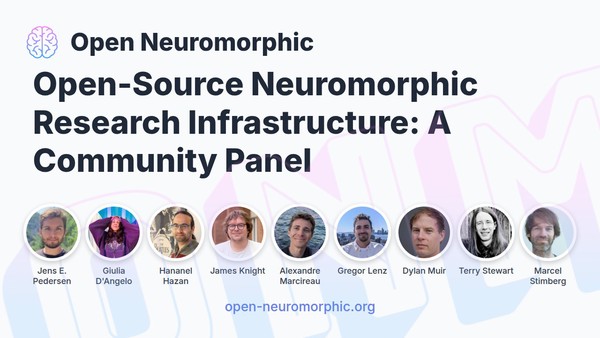
Upcoming Workshops
No workshops are currently scheduled. Check back soon for new events!
Are you an expert in a neuromorphic topic? We invite you to share your knowledge with our community. Hosting a workshop is a great way to engage with peers and share your work.
Inspired? Share your work.
Share your expertise with the community by speaking at a workshop, student talk, or hacking hour. It’s a great way to get feedback and help others learn.









